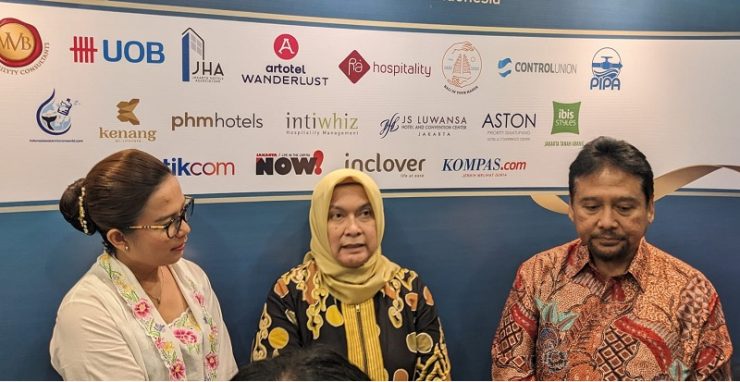THE MINISTRY of Tourism is encouraging the Indonesian Hotel Public Relations Association (H3) to actively increase its role in disseminating information regarding quality and sustainable tourism development.
According to the Deputy for Industry and Investment at the Ministry of Tourism, Rizki Handayani, during the opening of the H3 Summit 2025 at the Soesilo Soedarman Hall, Sapta Pesona Building, Jakarta, on Thursday (9/25), 2025, said the hotel business has long been the mainstay of the Indonesian tourism industry. The quality of hotel accommodations and services also consistently shapes tourists’ first impressions of Indonesian tourism.
“Therefore, the role of public relations is crucial. Hotel public relations must be able to build a positive narrative, not only regarding hotel products, but also regarding Indonesian tourism that prioritizes sustainable principles,” said Rizki.
The trend for sustainable tourism is growing in line with global awareness of environmental issues. Referring to its Nationally Determined Contribution (NDCs), Indonesia is targeting a 31.89% reduction in greenhouse gas emissions by 2030 through its own efforts or 43.2% with international support. Indonesia is also targeting net-zero emissions by 2060 or earlier, 70% waste management by 2025, and a 35% reduction in food waste per capita by 2030.
“To achieve these targets, the tourism sector is increasingly implementing sustainable practices, including the hotel industry. This is evident in the growing number of hotels adopting environmentally friendly principles, nature conservation, and local community involvement,” she affirmed.
In this regard, Rizki Handayani continued, hotel public relations plays a role in communicating sustainability programs implemented by the industry and government policies to the wider public.
“The Grand Sahid Jaya Hotel in Jakarta, for example, has a structured waste management system and can serve as an example for other hotel industries. Such good practices need to be more widely publicized,” she added.
Meanwhile, from the government’s perspective, Rizki explained that the Ministry of Tourism has implemented various programs, including managing food waste and food loss, implementing the Blue, Green, and Circular Economy (BGCE) in hotels, awarding Green Hotels, and developing hotel supply chains related to Sustainable Development Goals (SDGs), including the use of local resources.
“Our role is actually to facilitate the industry, especially hotels, so they can transform towards sustainable tourism. Next year, there will be several programs supported by international funding to encourage sustainable tourism,” Rizki elaborated.
Going forward, she also emphasized that his ministry will prioritize tourism businesses that have implemented SDG practices to participate in tourism exhibitions.
“It’s important for hotel managers to make this part of their program, and it’s also important for hotel public relations colleagues to communicate this. The market will look for hotels that have met green hotel criteria or SDG aspects, and those are the ones that will be selected,” he said.
Rizki concluded that hotel public relations also play a strategic role in highlighting issues related to gastronomic tourism, a key program of the Ministry of Tourism. Public relations can help promote gastronomy as part of the travel experience by serving authentic Indonesian cuisine and making hotel restaurants a prime destination for tourists to sample local cuisine. [traveltext.id/photo special]
















